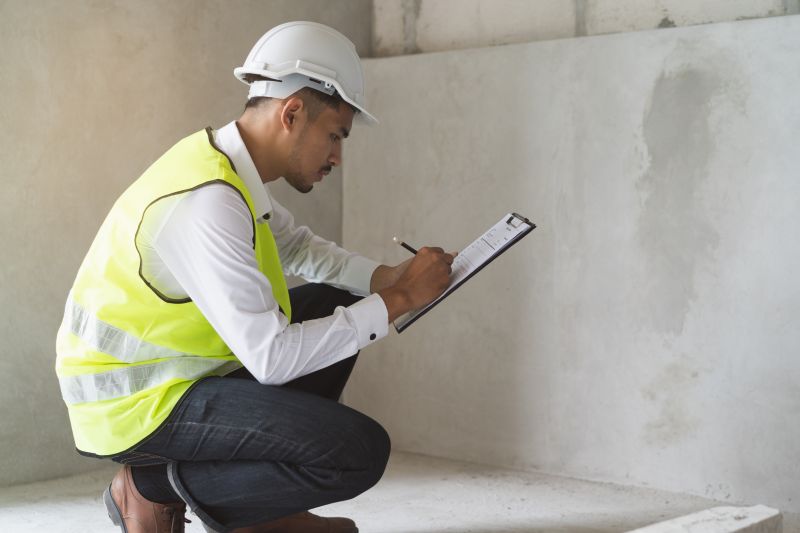Expert Picks For Structure Inspection Products That Deliver Results
Find out which inspection devices are favored by professionals for their accuracy, durability, and ease of use.
 Structural inspections are essential for assessing the integrity and safety of buildings, bridges, and other infrastructure. The right tools can help inspectors identify issues such as cracks, deformations, moisture intrusion, or material deterioration. Whether for professional engineers or DIY enthusiasts, having reliable equipment ensures accurate assessments and informed decision-making. Modern inspection tools often combine advanced technology with user-friendly designs, making the process more efficient and thorough. Investing in quality products for structure inspections can facilitate early detection of potential problems, ultimately supporting maintenance and safety protocols.
Structural inspections are essential for assessing the integrity and safety of buildings, bridges, and other infrastructure. The right tools can help inspectors identify issues such as cracks, deformations, moisture intrusion, or material deterioration. Whether for professional engineers or DIY enthusiasts, having reliable equipment ensures accurate assessments and informed decision-making. Modern inspection tools often combine advanced technology with user-friendly designs, making the process more efficient and thorough. Investing in quality products for structure inspections can facilitate early detection of potential problems, ultimately supporting maintenance and safety protocols.
Top Overall Option
Comprehensive Structural Inspection Kit
A versatile inspection kit that includes multiple tools such as a digital moisture meter, laser distance meter, infrared thermometer, and a flashlight. Designed for professionals and serious DIYers, this kit offers a broad range of features to evaluate various structural elements with precision and ease.
Types of Products For Structure Inspectings
Digital Moisture Meters
Devices used to detect moisture levels within walls, wood, and other materials to identify potential water damage or mold risk.
Infrared Thermometers
Tools that measure surface temperature variations, helping to locate heat leaks, insulation issues, or moisture intrusion.
Laser Distance Meters
Devices for quick and accurate measurement of distances, heights, and areas, useful in structural assessments and planning.
Structural Level Tools
Instruments that help determine the levelness or plumbness of surfaces, ensuring structural components are properly aligned.
Borescopes and Inspection Cameras
Flexible cameras that can be inserted into tight spaces, walls, or cavities to visually inspect hidden areas.
Crack Monitors
Tools designed to monitor the development of cracks over time, helping to assess structural stability.
Ultrasonic Thickness Gauges
Devices that measure the thickness of materials like steel or concrete, useful for evaluating corrosion or material loss.
Sound Level Meters
Tools that measure noise levels, which can indicate structural vibrations or issues in mechanical components.
Vibration Analyzers
Instruments that detect and analyze vibrations in structures to identify potential weaknesses or failures.
Concrete Test Hammers
Portable devices that assess the surface hardness of concrete, providing an estimate of its strength.
Structural Load Test Equipment
Tools used to apply controlled loads to structures to evaluate their capacity and performance.
Environmental Sensors
Sensors that monitor humidity, temperature, and other environmental factors affecting structural health.
Popular Choices
Widely used for detecting moisture levels in building materials, aiding in early identification of water issues.
Commonly employed to locate temperature anomalies that may indicate insulation problems or moisture intrusion.
Popular for quick and precise measurement tasks during structural assessments and renovations.
Essential for visual inspections in hard-to-reach areas, these tools are frequently used by professionals and DIYers alike.
Commonly used to track crack progression over time, providing valuable data for structural health analysis.
Popular for assessing material thickness and detecting corrosion or deterioration in metal structures.
Frequently chosen for ensuring proper alignment and leveling in construction and repair projects.
Often used to evaluate structural vibrations and mechanical noise in various settings.
Popular for detecting abnormal vibrations that may indicate issues in machinery or structural components.
Commonly used for quick, non-destructive testing of concrete surface hardness and strength estimation.
Key Buying Considerations
- Accuracy and precision of the measurement tools for reliable assessments.
- Ease of use and ergonomic design to facilitate handling during inspections.
- Durability and build quality suitable for various environmental conditions.
- Compatibility with other tools or accessories for comprehensive inspections.
- Power source options such as batteries or rechargeable units for convenience.
- Range and measurement capacity to suit different structural sizes and types.
- Display clarity and readability for quick data interpretation.
- Portability and weight, especially for field inspections in challenging locations.
- Data storage and transfer capabilities for documentation and analysis.
- Availability of calibration options to maintain measurement accuracy over time.
- Cost-effectiveness relative to the scope of inspection needs.
- Brand reputation and customer reviews for reliability insights.
- Warranty and customer support services for long-term use.
- Compatibility with digital reporting or inspection software.
This page contains affiliate links. We may earn a commission if you make a purchase through these links, at no additional cost to you. Our goal is to provide helpful and accurate information to assist your selection process.
